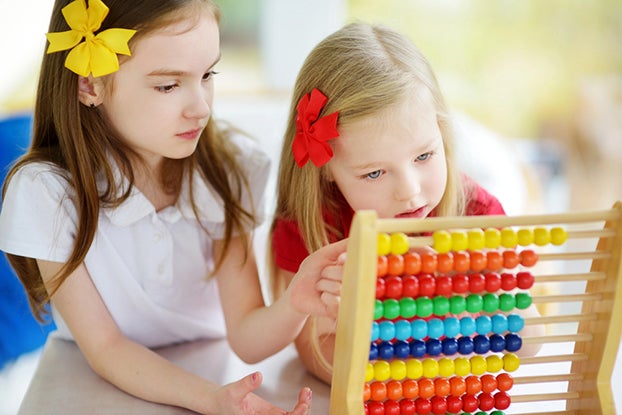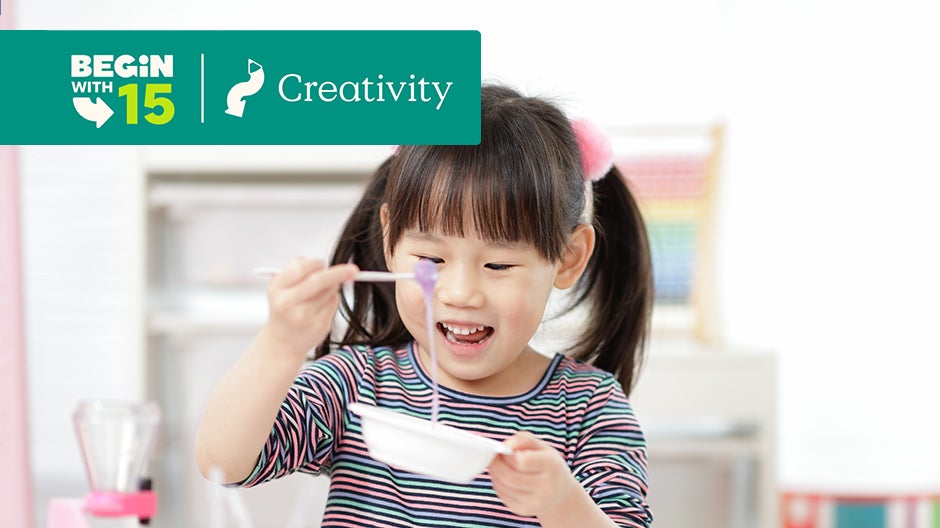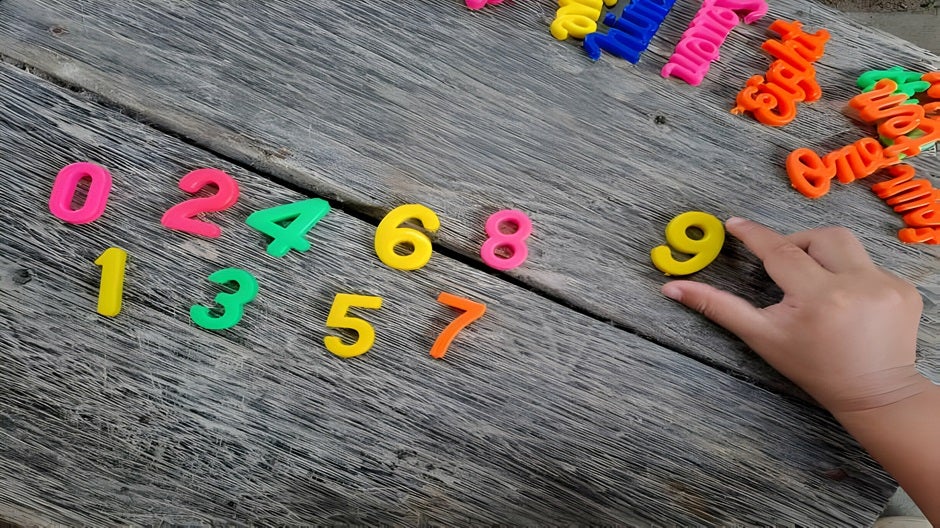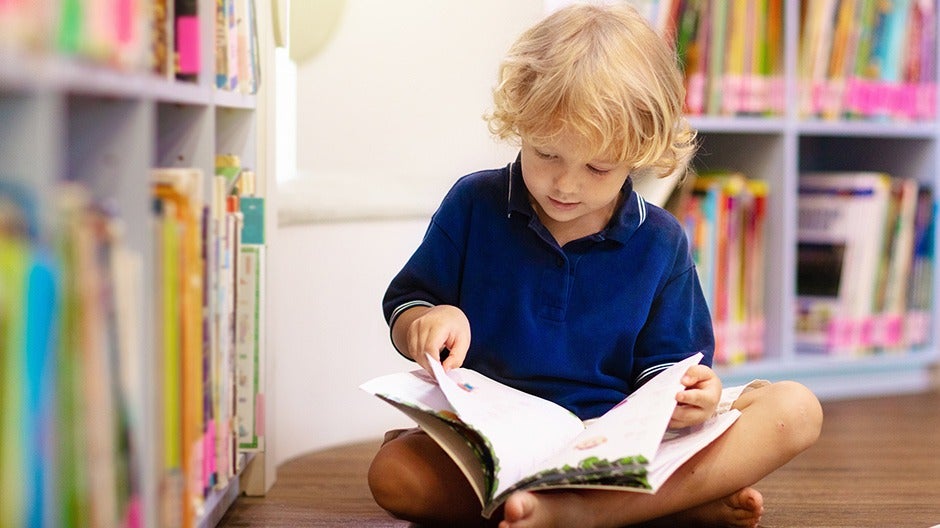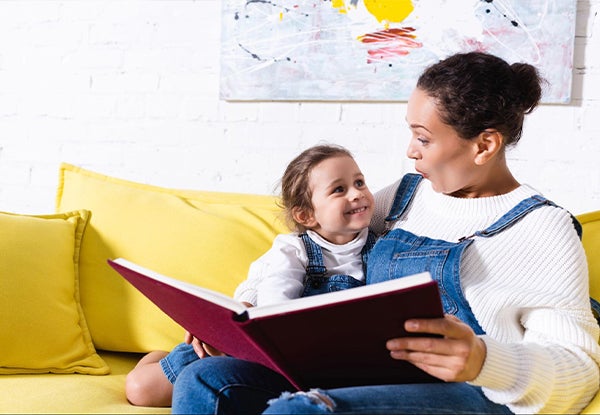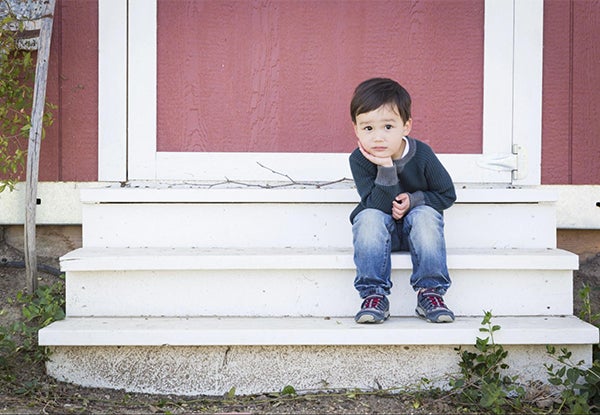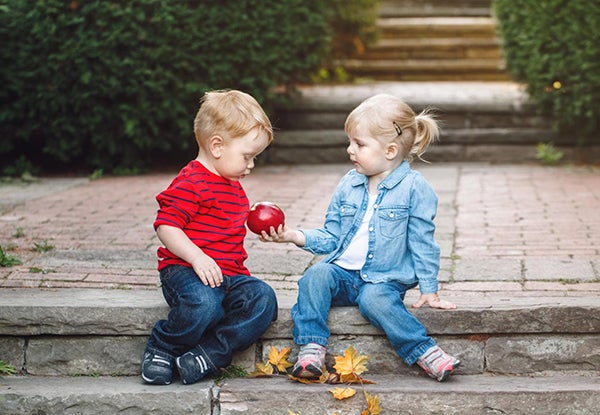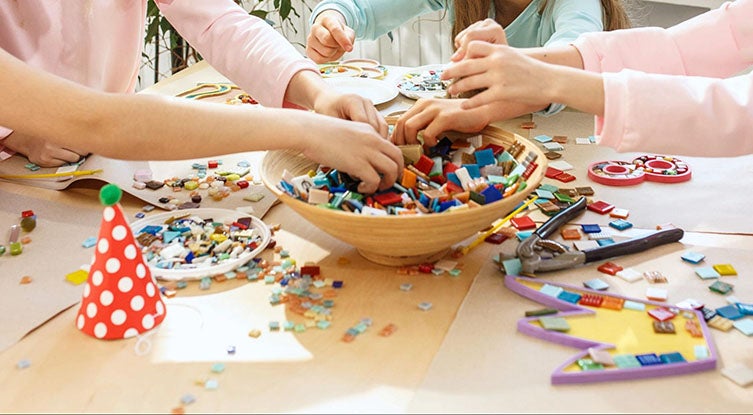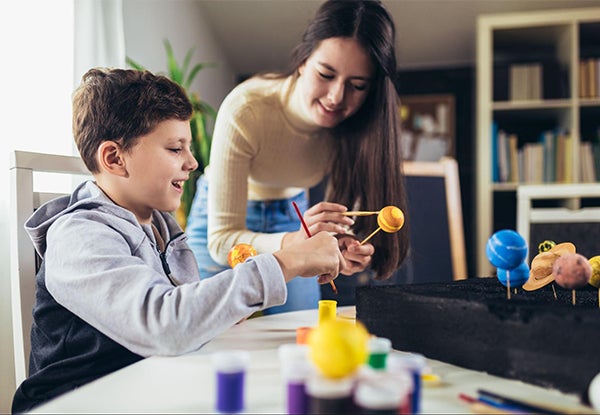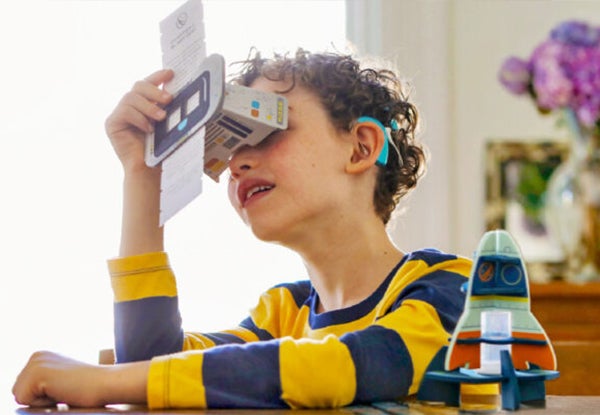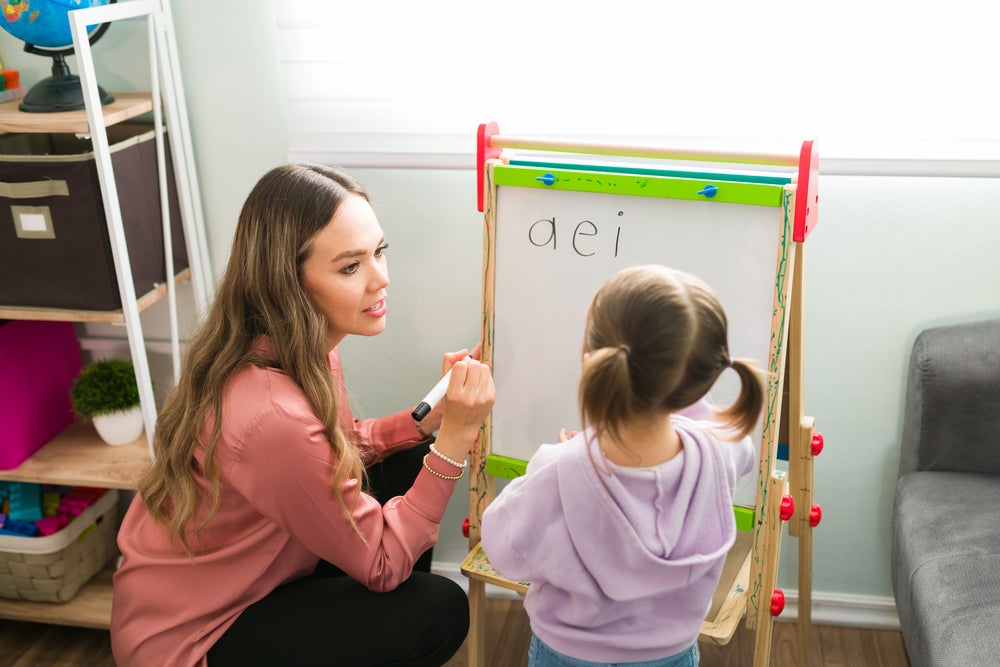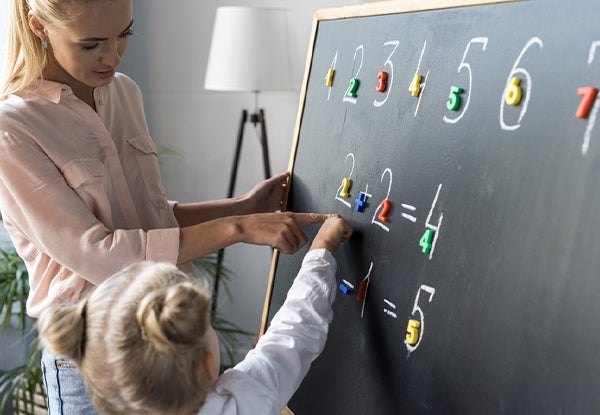Math is an essential subject that lays the foundation for critical thinking, problem solving, logical reasoning, and a love of learning. As a caregiver, you can help your child develop their math skills early on.
In this guide, we’ll discuss math concepts by age and provide practical tips and fun activities to incorporate these skills into your child’s daily routine.
Let’s get started!
Table of Contents
What Are Early Math Skills?
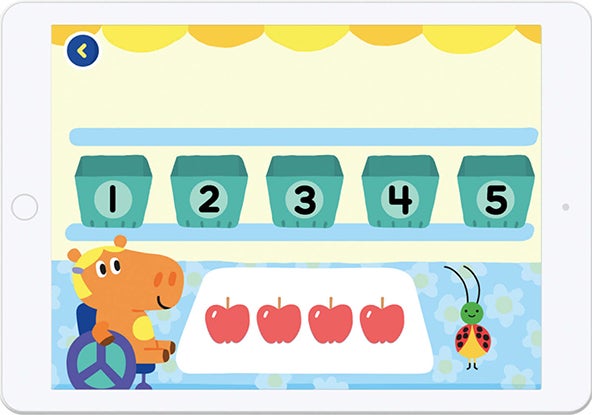
Early math skills are the basic concepts and principles children need to understand before moving on to more complex mathematical concepts. Experts have broken these skills down into five main categories.
Let’s look at each.
Numbers and Operations
If your child is familiar with numbers and how they work, they’ll have a strong foundation for all sorts of math skills. Skills grouped under numbers and operations include:
- Counting
- Comparing quantities
- Using ordinal numbers to communicate the order of objects in a series
- Recognizing numerals
- Representing quantities with manipulatives
- Performing basic calculations such as addition and subtraction
Patterns
Learning to recognize basic patterns in early childhood helps your child build a solid foundation for mathematical concepts such as classifying, sorting, and logical thinking. Patterns, whether they are visual, numerical, or verbal, help children see the relationships between numbers and objects.
For young children, this category includes:
- Identifying simple patterns like ABAB or ABBABB
- Creating patterns with objects or colors
- Continuing a pattern
Spatial Sense
Spatial sense is the ability to understand and manipulate objects in space. It involves mental imaging, shape recognition, and spatial reasoning. Developing this skill can help children boost their problem-solving and critical thinking abilities across subjects.
Some examples of spatial sense activities include:
- Recognizing shapes in the environment
- Completing puzzles and tangrams
- Drawing shapes or creating shapes using objects (sometimes called manipulatives)
- Turning shapes and objects in the mind’s eye
Measurement
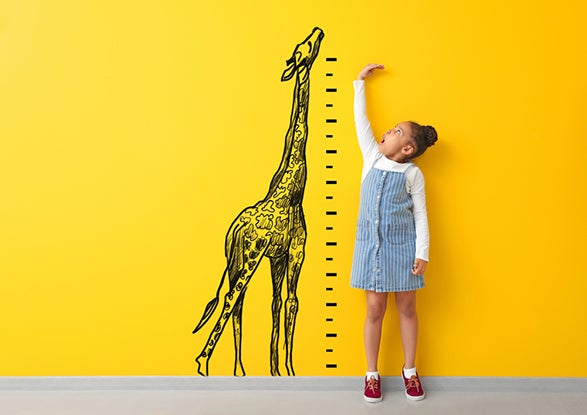
Measurement is an essential skill for understanding quantities and making comparisons. It involves recognizing and comparing attributes of objects, such as size, length, weight, and volume.
Children develop this skill at a young age by comparing objects of different sizes. As their math abilities progress, they learn to use standardized units of measurement like inches, pounds, and gallons.
Some fun activities to help children develop their measurement skills include:
- Sorting objects by size, weight, or length
- Using non-standard units of measurement (such as paper clips) to measure objects (for example, measuring how long a pencil is by how many paper clips it takes to equal it)
- Measuring ingredients for a recipe
- Using a growth chart to track height over time
Data Analysis and Probability
Data analysis and probability may sound too complicated for early childhood education, but it’s a critical skill for kids to develop. It involves collecting, organizing, and interpreting information.
Some examples of data analysis kids can do include:
- Using a chart to track the weather each day
- Sorting and graphing different colored objects
- Counting and comparing the number of objects in two groups to see which has more
- Conducting surveys or polls with family members about favorite foods
Math Concepts by Age
Now that you know more about early math skills, you may wonder when children should start learning specific concepts. While every child is different and will progress at their own pace, here are some general guidelines for each age group in early childhood:
Babies
You might already know the importance of reading to your baby. But you can also start teaching them math before they can even speak by doing simple activities like these:
- Reciting math-themed nursery rhymes or songs (such as “One, Two, Buckle My Shoe”)
- Counting how many blocks you stack up before your baby knocks them over
- Talking about the colors of the clothes you’re selecting
- Playing with a shape sorter
Toddlers
Toddlers are so curious! It’s the perfect time to introduce basic math concepts in a playful and hands-on way.
Here are some fun ideas for teaching math to toddlers:
- Using blocks to create patterns (such as red, yellow, red, yellow)
- Counting fingers while singing songs like “Five Little Monkeys Jumping on the Bed”
- Teaching basic shapes by pointing them out in everyday objects
- Pouring water from one measuring cup into another
Preschoolers
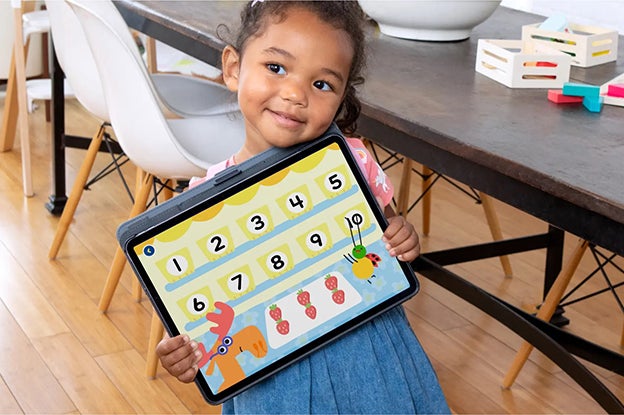
At this age, your child is ready to understand more complex concepts, but they still learn best through play and real-life experiences.
Here are some ideas to try:
- Hanging a wall calendar and using it to track special days throughout the year
- Playing store with pretend money
- Sorting toys into different categories
- Creating simple graphs with data to track everyday habits
Kindergarteners
By the time they start school, some kindergarteners may already be familiar with basic math concepts. Now it’s time to build on those skills and introduce new ones.
Kindergarten math activities include:
- Using household objects to practice counting
- Creating story problems with familiar scenarios
- Introducing basic fractions by cutting food into equal parts during snack time
- Using a ruler to measure different objects and compare them
15 Fun Ways to Teach Math Skills at Home
Whether you have a toddler, preschooler, or kindergartener, here are some hands-on and playful ways to teach math concepts at home.
1) Count
1, 2, 3, count everything you see. Count fingers, toes, toys, snacks, stairs—you can count anything and everything!
2) Match and Sort
Turn basic household chores, like matching socks and unloading the silverware tray from the dishwasher, into a fun math activity. Ask your child to sort objects by color, shape, or size.
3) Go on a Shape Hunt
How many circles can your child spy in the living room? Walk around the house and see how many different shapes you can find.
4) Make Comparisons
Grab two toys or objects and ask your child which is bigger, smaller, heavier, or lighter.
5) Use Technology
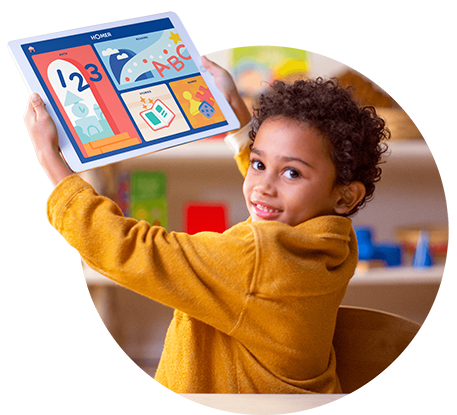
HOMER by Begin helps your child learn and practice early math concepts through interactive games and activities. During their screen time with HOMER, your child can build a strong foundation for math and other core skills, like reading. And best of all, it’s personalized for your child’s learning level and interests!
6) Build Patterns
Use different colored blocks, beads, or snacks to make patterns for your child to continue. Start simple with a basic ABAB pattern and then get more complex as your child masters the concept. Encourage them to create their own patterns as well.
7) Cook Together
Cooking requires math. Have your child help measure ingredients, count how many eggs you need, or divide portions equally.
8) Play Hopscotch
Break out the sidewalk chalk and draw a hopscotch board. If your child is ready, have them write numbers in the squares. Once the board is ready, ask your child to jump to each square in numerical order, calling out the number as they land.
9) Check the Calendar
Use a daily calendar to practice counting the days, weeks, and months. Encourage your child to create a countdown to a special event or day, such as their birthday. Each day, they can subtract one from the total number of days left.
10) Color Days
Pick a color and highlight it as much as possible during a Color Day. You and your child can both:
- Wear clothes of that color
- Eat foods of that color
- Draw pictures using only that color
- Make a list of items that are that color
11) Use Sticker Charts
Create a sticker chart for your child to track milestones like getting dressed independently or writing their name. Each time they’re successful, let them add a new sticker. If you want to, add a goal like going out for a treat when they reach 10 stickers.
At the end of the week, count the stickers and talk about the data. How many stickers did they get? How many stickers do they predict they’ll get next week?
12) Estimate
How many cookies are in the jar? How many toys are on the floor? Ask your child to make different estimations and count to see if their guesses were close.
13) Play Board Games
Many early childhood board games, such as Chutes and Ladders or Candy Land, involve counting spaces or objects. What a fun way to work on math skills!
14) Use a Stopwatch
Some kids enjoy racing against the clock. Break out the stopwatch and see how long it takes them to pick up their toys, write the alphabet, or sing a song.
15) Read Books with Math Concepts
Many children’s books incorporate counting, shapes, and other math concepts. Here are a few suggestions for your next storytime:
- The Button Box by Margarette S. Reid
- Elevator Magic by Stuart J. Murphy
- Mouse Count by Ellen Stoll Walsh
- The Growing Story by Ruth Krauss
- Mr. Noisy’s Book of Patterns by Rozanne L. Williams
Build Early Math Skills with HOMER by Begin
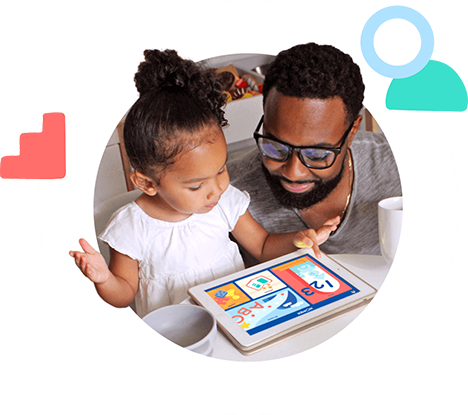
With the right activities, teaching your child early math skills can be a fun and rewarding experience. Remember, the key is to make learning feel like play, and that’s where Begin’s HOMER app comes in. Give our free trial a try today and see how enjoyable math can be!
